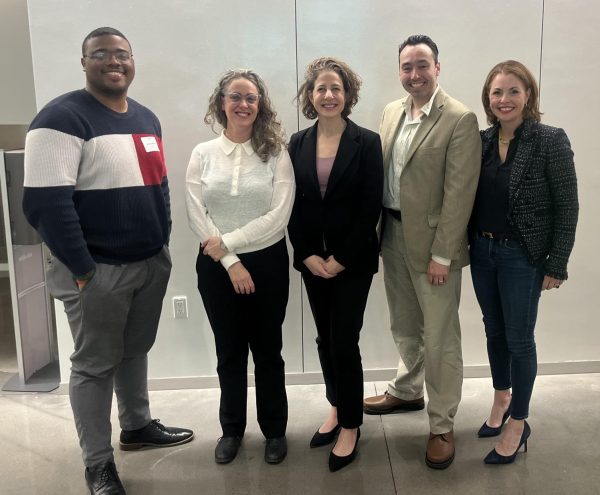Political reporters opened up about their fears for press freedom in a second Donald Trump presidency during a panel in Manhattan on Monday, Dec. 2, organized by a William Paterson professor.
A month after Election Day, journalists from THE CITY, Politico, and City & State raised questions about the future of their profession during the event at the Cornell Tech campus on Roosevelt Island. Dr. Nick Hirshon, an associate professor of communication at William Paterson, organized the panel in his role as vice president of student affairs for the Deadline Club, the New York City chapter of the Society of Professional Journalists.

“How is it going to play out?” asked Alyssa Katz, the executive editor of THE CITY, a nonprofit digital news outlet that covers New York. “Is it going to play out in First Amendment fights, right, where we’re going to have to then be in court all the time, and then everything else that’s politicized and thrown into the courts creates a really chaotic and frightening situation? How much does that manifest in self-censorship?”
The panel was moderated by Erin King Sweeney, the senior associate director of Cornell University’s Institute of Politics and Global Affairs. Sweeney prodded the journalists on how they will shift during Trump’s second term.
“We will do our jobs the best we can,” Katz said. “I know this sounds very like truth, justice, and the American way, but I really believe that very sincerely. We just do the work and do it accurately and forcefully, without fear or favor, and we’ll deal with each challenge as it comes up.”
The panel also turned to journalists trying to smooth over their relationships with Trump since his election, like the Wall Street Journal’s Peggy Noonan and MSNBC’s Joe Scarborough and Mika Brzezinski.
“I mean, going to see Trump for personal reasons, when you’re a member of the media, is problematic,” said Sally Goldenberg, the senior New York editor at Politico. “Covering Trump is necessary. You have to go to his press conferences and ask him questions. You have to talk to people who work for him. You have to cover him and cover what he’s doing and try to do it fairly and objectively. That’s not problematic.”
Katz added, “Whether it’s the threats from the likely FBI nominee or from Trump himself, where he has explicitly promised to go after media organizations that he feels he’s contending have not been fair, or do not align with his own agenda, I feel like, as journalists, we’re holding our breath.”
Austin Jefferson, an associate state politics reporter for City & State, said he sometimes worries about “our commitment to accurate reporting,” such as fact-checking every Trump speech.
“As a journalist, I really do wonder if going over every single word and saying, ‘This is true and this is not,’ doesn’t actually change minds or open eyes,” Jefferson said. “I mean, what is left?”
The panel also covered the role that emerging media, such as podcasts, play in the political discourse and how mainstream media may have to adapt their approach to reporting.
“One thing that’s important for mainstream media to figure out going forward is whether they want to be information-based,” Goldenberg said. “People still consume information. But it’s different mediums. … Fox News is so influential, and I think will remain influential is that it’s not entirely information-based. It’s not just saying, here’s what happened. It’s saying, here’s how you should think about what happened, and it’s extremely influential in that. MSNBC tries to do that on the Democratic side, and doesn’t come anywhere near that level of influence.”
Goldenberg ended by saying, “The Democrats don’t quite have an equivalent level of influence on their more friendly media outlets.”